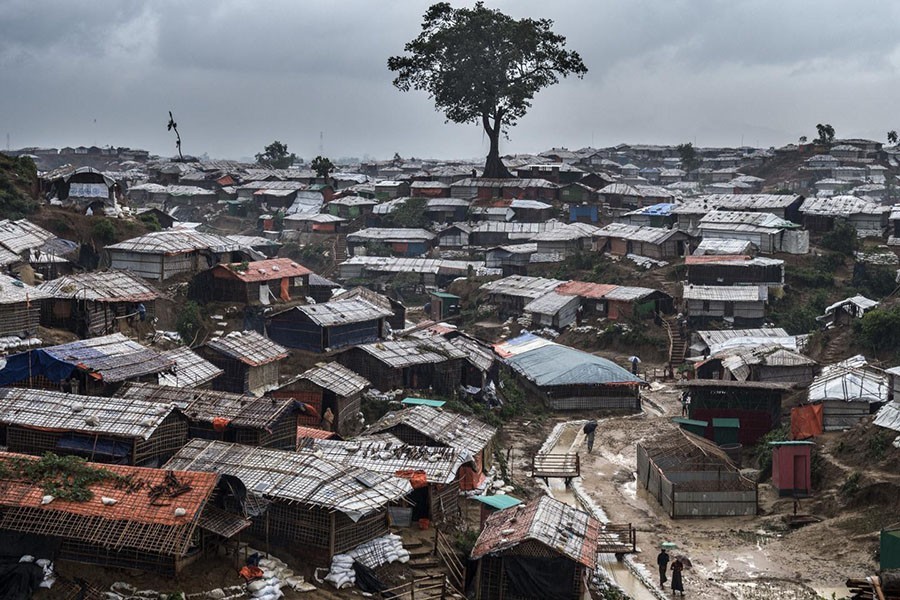Funding for the Rohingya refugees declined significantly in 2022, compared to the previous two years, causing grave concern among the humanitarian agencies and the Bangladesh government.
The UN humanitarian agencies and the government sought US$ 881 million from various donors across the world for 2022.
But, the donors disbursed a total of $431 million last year to the Joint Response Plan (JRP) fund, according to the latest data of the UN agencies concerned.
The amount was only 49 per cent of the funding - required for providing humanitarian support to one million Rohingya refugees, who took shelter in Bangladesh in the face of brutal crackdown by the Myanmar security forces.
In 2021, the donor countries provided $680.9 million, which was 72 per cent of the $943 million - sought by the humanitarian agencies.
In 2020, they received $630 million against the requirement of $1,003 million. The disbursement rate was 60 per cent.
According to the analysts, the fall in funding was caused by mobilisation of resources to other refugee settlements, especially to support the Ukrainian refugees in Europe.
The funding fall also resulted from various belt tightening measures - taken by the donor countries, which are now facing shock of the economic recession, they added.
According to the UNHCR, the Rohingya refugees would face additional challenges in their life due to the decreased funding.
The agency officials said protection needs, especially for women, children and people with disabilities, which are often underreported, could no longer be met.
If the funding decreases, the refugees would no longer have access to sufficient nutritious food and quality healthcare, they opined.
According to reports, the UNHCR, together with the Bangladesh government, will soon launch the JRP 2023 and appeal to the donor partners for $876 million in 2023.
The JRP 2023 will appeal to the international communities to renew their sustained support for the Rohingya refugees and the Bangladeshi communities generously hosting them.
The plan aims to support approximately 1.47 million people, including 978,000 Rohingya refugees in Cox's Bazar and Bhasan Char as well as around 495,000 Bangladeshis in the localities.
Under the leadership of the Bangladeshi authorities concerned, the JRP will bring together activities of the partners, of which more than half are Bangladeshi organisations.
The JRP 2023 aims to maintain and enhance life-saving and life-sustaining humanitarian assistance and services for the Rohingyas, by providing decent shelter and access to food, health, water, sanitation, and hygiene services.
The plan also supports humanitarian projects in the surrounding host communities, as the social and economic conditions as well as the environment have been impacted by the presence of the Rohingya refugees.
In 2022, the US was the top contributor to the JRP fund with 50.1 per cent of the funding. The EU contributed 11.2 per cent and the UK 7.1 per cent of the fund, disbursed under the JRP.


